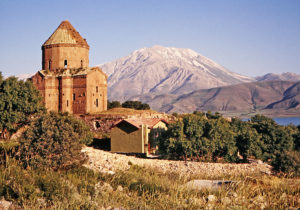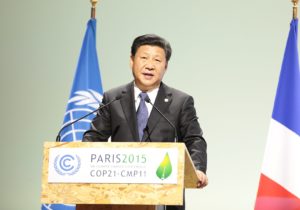Ridley Scott’s new Napoleon movie has been widely panned for its superficial plot and historical inaccuracies. All historical dramas are inaccurate. Their chief purpose is entertainment not historical education, which is the goal of documentaries.
Some historical dramas skew history benevolently, ideally to amplify the plot and to illustrate wider truth. Darkest Hour unhistorically but well meaningly sent Churchill into the subway to find strength from ordinary people. Other films are more malevolent in their distortions. Oliver Stone’s JFK portrays the whole U.S. government, with countless others, collaborating in Kennedy’s assassination. Stone really believed his malarkey, and his film helped stained the minds of millions of credulous viewers. His Nixon biopic, portraying the president as a mere tool of a military-industrial complex known as The Beast and headed by Larry Hagman, is even sillier.
The Killing Fields movingly portrayed events surrounding Pol Pot’s Cambodian genocide. Sadly, it concludes by faulting Nixon for the communist mass murder, based on William Shawcross’s dubious history, Sideshow: Kissinger, Nixon, and the Destruction of Cambodia. Historical dramas with axe-wielding political goals are less than entertaining and often exhausting.
Napoleon, in contrast, seems to have no real agenda, hence the complaints about lack of plot. It’s chiefly a series of magnificent battles interspersed by trysts and arguments between Napoleon and his lover Josephine. This lack of message is almost a relief. It does leave the viewer wondering about Napoleon’s underlying motivation for conquering much of Europe, beyond impressing Josephine. The unspoken answer may have been that the motive was even for Napoleon ad hoc and unarticulated. He was, at his best, a political and military genius who didn’t know when to stop. Artists paint paintings. Composers create music. Napoleon conquered nations.
The film admirably concludes by noting the fatalities resulting from Napoleon’s ambitions, which it puts at three million. And for what purpose other than the self-aggrandizement of one man? His endless ambitions ultimately provoked much of Europe to resist, defeat and exile him. Fascinatingly, he was not executed or even imprisoned by the victors, who still deemed him a former head of state, even royalty, who merited some ongoing dignity. Napoleon was royal only by virtue of crowning himself emperor. The Pope was summoned to preside over the coronation, for the purpose of legitimacy, in homage to Christendom and the old order, as the film portrays. But Napoleon grabbed the crown from the Pope and set it on his own head, telling onlookers he had metaphorically retrieved it from the gutter. In other words, he had restored France’s glory.
Although not religious himself, Napoleon saw the futility of the French Revolution’s complete war on religion. He realized churches and popes had utility. He also had desires beyond power for himself. Napoleon saw himself as the archangel of Enlightenment. Surprisingly, Winston Churchill was an admirer and observed:
The impetus of the French Revolution had been spread by the genius of Napoleon to the far quarters of Europe. Ideals of liberty and nationalism, born in Paris, had been imparted to all the European peoples. In the nineteenth century ahead they were to clash resoundingly with the ordered world for which the Congress of Vienna had striven. If France was defeated and her Emperor fallen, the principles which had inspired her lived on. They were to play a notable part in changing the shape of government in every European country, Britain not excepted.
Churchill admitted Napoleon may have been “a military tyrant, a conqueror, a man of order and discipline, a man of mundane ambitions and overwhelming egotism but his grandeur defied misfortune and rises superior even to time.” Churchill rejected comparing “the great Emperor and warrior” to Hitler, who was by comparison a “squalid caucus boss and butcher.” Napoleon to Churchill was “the greatest man of action born in Europe since Julius Caesar.”
Just as notably Hegel, after seeing Napoleon, exclaimed, “I saw the Emperor – this soul of the world – go out from the city to survey his reign; it is a truly wonderful sensation to see such an individual, who, concentrating on one point while seated on a horse, stretches over the world and dominates it.” Hegel deemed Napoleon the incarnation of historical progress. Doubtless Napoleon agreed.
Such persons, although streaming across the sky like bright comets, are of course very dangerous. Often millions die thanks to their delusions and ambitions. They must be defeated by more grounded persons, like the Duke of Wellington, who is portrayed in the movie pompously by Rupert Everett.
Napoleon, portrayed by Joaquin Phoenix, who was another dangerous if less capable emperor in Gladiator, is ultimately seen as rather dingy. Maybe this portrayal is unfair to Napoleon’s dash and brilliance. But it feels appropriate. Thanks partly to the example of Napoleon, followed by more sinister successors like Hitler, the West no longer accepts much less glorifies conquerors. Nor does the West, at least hopefully, seek leaders who supposedly incarnate historical progress. But the West must continue to defend itself from other cultures that still glorify empire and tyranny.
In this sense, Napoleon is timely and helpful. So called great men and their endless ambitions must be guarded against and figuratively exiled to remote, very distant islands.







 Sponsor a student for Christianity & National Security 2024
Sponsor a student for Christianity & National Security 2024